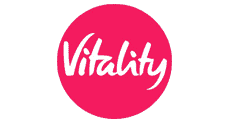Health insurance for heart surgery in the UK
Home > Health Insurance > Health insurance for Heart Surgery in the UK
Health insurance for heart surgery in the UK
Health insurance for Heart Surgery is a private medical insurance plan that helps cover the costs of heart surgeries and related treatments. While the NHS provides free healthcare, private health insurance offers faster access to specialist consultations, diagnostics and surgery, ensuring high-quality treatment with minimal waiting times. However, policies may exclude pre-existing heart conditions, so it is essential to understand what is covered before purchasing a private health insurance policy.
Navigate the guide:
Get tailored health insurance quotes from top UK insurers
How it works
Step 1. Answer a few simple questions
Step 2. Get tailored quote
Step 3. Get covered and start saving
Why Choose Us
We offer completely free and no obligation advice on Private Health Insurance. Our experienced advisors will take the stress away from you and do all the hard work in finding you the best Provider by comparing quotes with the top leading providers in the market. We have worked directly with AXA, Aviva, Bupa, and Vitality for over 40 years, we have been tailor-making the best policies for our customers.
Health Insurance People
Get expert advice from our dedicated health insurance advisors for free
24/7 Customer Care
You can contact us anytime and one of our health insurance consultants will always be available to you.
Claims Support
We will be there for you throughout the claims process to ensure that it is easy and stress-free.
Heart Disease
Heart disease is a major health problem worldwide, causing millions of deaths every year. It includes different conditions that affect how the heart works. Some common types are:
Coronary artery disease (CAD)
This happens when the blood vessels that bring oxygen to the heart get clogged with fatty deposits. Imagine pipes in your house getting blocked and water can not flow properly. Similarly, when the heart does not get enough blood, it can lead to chest pain or even a heart attack.
Heart attack
A heart attack happens when blood flow to the heart suddenly gets blocked, usually by a blood clot. Without oxygen, part of the heart muscle starts to die. It feels like intense chest pain, pressure or discomfort and it needs emergency medical attention.
Arrhythmias
Your heart has a natural rhythm, like a steady drumbeat. But sometimes, it beats too fast, too slow or in an uneven way. This can make you feel dizzy, weak or like your heart is skipping beats. Some arrhythmias are harmless, but others can be dangerous and need treatment.
Heart failure
This does not mean the heart stops working completely, but it does mean it is too weak to pump blood as well as it should. This can make you feel tired, short of breath, or cause swelling in your legs. It often develops over time due to other heart problems.
According to the World Health Organisation, heart disease is the number one cause of death globally, responsible for about 18 million deaths per year. Early detection and treatment are key. Watch out for warning signs like chest pain, shortness of breath or feeling very tired, these should never be ignored.
How does health insurance for heart surgery work?
Health insurance for heart surgery works similarly to other private medical insurance plans. You choose a policy, pay monthly or annual premiums and get access to private treatments.
Key Features:
- Covers inpatient treatments, including heart surgery.
- Provides access to private specialists and hospitals.
- Reduces NHS waiting times for diagnosis and surgery.
Private health insurance policies usually exclude pre-existing heart conditions. If you develop a heart condition after purchasing the policy, most insurers will cover your treatment. However, chronic conditions requiring long-term management may not be included.
What is the best health insurance option for Heart Operations?
Choosing the right health insurance provider is important, especially for heart surgery. Most health insurance providers offer cover for heart treatments. These plans help with surgery, recovery and follow-up care. They also offer extra services like second opinions and fast access to specialists. In this table, we will focus on five of the best providers: AXA Health, The Exeter, Aviva, Bupa and Vitality.
| Provider | Coverage for Heart Surgery | Unique Features |
|---|---|---|
| AXA Health | – Covers heart surgery, including hospital accommodation, surgeon, and consultant fees. – Comprehensive cover for post-surgery care and follow-ups. – No time limits for treatment or ongoing care. | – Access to a dedicated heart nurse for personalised support. – Includes recovery options like physiotherapy and mental health support. – Extensive hospital network across the UK. |
| The Exeter | – Covers heart surgery, including inpatient treatments, consultations, and diagnostics. – Post-operative care and treatments, including physiotherapy, are covered. – Focus on reducing waiting times for procedures. | – Includes a second medical opinion service, allowing members to get expert advice before proceeding with treatment. – HealthWise app provides GP consultations, mental health support and physiotherapy. |
| Aviva | – Covers heart surgery, including hospital stays, surgeon fees, and follow-up treatments. – Post-surgery treatments like physiotherapy and mental health support are included. – Includes some coverage for outpatient consultations. | – Quick access to specialists without needing a GP referral. – Offers wellbeing perks like rewards for healthy habits. – Option to choose private NHS facilities for treatment. |
| Bupa | – Covers heart surgery, including the surgeon’s and anaesthetist’s fees, hospital stay, and any required treatment. – Includes post-surgery rehabilitation and physiotherapy. – Offers some flexibility in adding extras, like outpatient surgery. | – Direct access to specialists for certain conditions. – Includes mental health support and dental care as part of their comprehensive coverage. |
| Vitality | – Wellness rewards for staying healthy, like discounts on fitness activities and wellness programs. – Includes a large hospital network with access to top-tier private hospitals. – Offers incentives for engaging in health-boosting activities like gym memberships and an Apple Watch to track activities | – Wellness rewards for staying healthy, like discounts on fitness activities and wellness programs. – Includes a large hospital network with access to top-tier private hospitals. – Offers incentives for engaging in health-boosting activities like gym memberships and Apple Watch to track activities |
To better understand each insurer, it is a good idea to speak with your broker. They can help advise which provider suits your needs best. Our health insurance advisers at PremierPMI will guide you through each option. They will explain the level of cover, hospital options, cost of health insurance and help you choose the best plan for you.

Our expert says…
“Private Medical Insurance is becoming increasingly more popular due to the longer waiting times through the NHS and most people assume PMI will not be affordable given the increased cost of living over the past 12 months. However, as an independent broker with access to the leading UK insurers such as Aviva, AXA and Bupa to name a few, there are hundreds of variations available at any one given time and therefore policies can be tailor-made to meet their requirements and budget.“
What does health insurance for Heart Operations cover?
Health insurance helps pay for medical treatment. It covers new conditions that happen after your policy starts, such as a sudden illness or injury. However, it will not cover any pre-existing conditions, which are health issues you already had before the policy began. The good thing is that health insurance is flexible, so you can choose from different options based on your needs. One of the benefits of health insurance is that you can skip the long NHS waiting list.
Outpatient Cover
Outpatient cover pays for treatments and doctor visits that do not require you to stay in a hospital. This includes things like check-ups, medical tests or minor surgeries that are done outside the hospital. For example, if you need to see a specialist for a knee problem or get an X-ray for an injury, outpatient cover would help pay for those expenses.
Inpatient Cover
Inpatient cover provides financial support for medical treatment that requires a hospital stay. This could be for surgery, treatment or recovery after an illness or injury. For example, if you need heart surgery and have to stay in the hospital for a few days, inpatient cover would help pay for the cost of your stay, surgery and any necessary treatments.
Hospital List
The hospital list is a list of approved hospitals where you can receive treatment under your health insurance policy. Some health plans may limit you to using certain hospitals, while others may allow you to choose from a broader range. When selecting a plan, you can check which hospitals are covered, ensuring that the places you prefer are included in your list.
Excess
Excess is the amount you must pay out of pocket before your health insurance kicks in. For example, if you have an excess of £200, you would need to pay the first £200 of any medical treatment costs and the insurance would cover the rest. You can choose to include excess in your plan to lower your monthly premium. This means your plan will cost less every month, but you will pay more if you need treatment.
Additional Benefits
Example: Heart Surgery
If you need heart surgery, the core plan would cover the hospital stay and surgery itself. However, if you have outpatient cover, it would also pay for any tests or consultations before and after your surgery. You can also choose additional benefits like physiotherapy to help with recovery after the surgery. If you travel abroad for treatment, worldwide travel cover would ensure that you are still covered. The more benefits you add to your plan, the more comprehensive the coverage, but it will also be more expensive.
How much is health insurance for Heart Surgery?
Premiums vary based on age, medical history and coverage level. Estimated costs for a mid-range plan with a £100 excess in the HA1 postcode area:
| Insurer | 40 Years Old | 50 Years Old |
|---|---|---|
| AXA | £50.21 | £65.62 |
| Bupa | £47.26 | £76.87 |
| Aviva | £43.76 | £56.90 |
| Vitality | £50.75 | £64.10 |
These prices are valid as of April 2025.
Premiums increase with age and medical risk factors. Speaking to a broker ensures you get the best rate for your situation.
How much does private heart surgery cost?
The cost of heart surgeries in the UK can differ based on the type of procedure, the location of the hospital and the needs of the patient. While these surgeries are available for free through the NHS, private treatments come with levels of costs depending on where the treatment takes place. Below are some estimated costs for common heart surgeries in private healthcare settings across the major UK cities, including London, Birmingham, Cardiff, Edinburgh and Manchester.
Coronary Artery Bypass Surgery (CABG)
Coronary Artery Bypass Grafting (CABG) involves creating an alternate path for blood to flow around blocked coronary arteries. For private healthcare, the cost of this surgery typically starts around £14,500, including professional fees.
Aortic Valve Replacement
Aortic valve replacement surgery involves replacing a damaged aortic valve with a prosthetic valve. In private settings, the cost for a low-risk single surgery generally starts from £2,300. If the surgery is more complex or considered higher risk, the cost can increase to around £2,500 to £35,000 for complex mitral valve replacement.
Pacemaker Insertion
A pacemaker is implanted to regulate the heart’s rhythm in patients with arrhythmias. The cost for a dual-chamber pacemaker implantation in a private hospital is approximately £12,250, which includes the cost of the pacemaker device itself.
Angioplasty
Angioplasty is a procedure to widen narrowed or blocked blood vessels in the heart using a balloon catheter. The cost for this procedure in private healthcare settings usually falls between £9,500 and £12,540, with an average price of about £11,020.
The initial consultation fee for a cardiologist in private practice usually ranges from £200 to £300. This is an essential aspect to consider when calculating the total cost of treatment.
How to pay for private heart surgeries?
Self-Pay
One way to cover the cost of heart surgery is by paying for it yourself. This means you cover the full amount out of pocket, which can be expensive. However, many private hospitals offer payment plans that allow you to spread the cost over several months or years. If you have savings set aside or can afford to pay in installments, this can be a good option for quicker treatment.
Private Health Insurance
Health insurance is another way to pay for heart surgery. Many people take out private medical insurance that covers major procedures, including heart-related treatments. If you have insurance, it is important to check your policy to see what is included. Some plans cover the full cost, while others require you to pay a portion of the bill.
Medical Loans
Some private hospitals offer financing options to help patients afford surgery. These structured payment plans allow you to pay in installments rather than all at once. Another option is taking out a medical loan from a bank or lender, which provides the funds upfront and allows you to repay over time.
How to choose the right health insurance plan?
Choosing the right health insurance plan for heart surgery is a crucial decision and reading the policy documents carefully is essential. Every plan has different levels of cover, exclusions and costs, so understanding the details can prevent unexpected expenses. Before committing to a policy, take the time to review what is included and compare different options to ensure you get the best coverage for your needs.
Cover Level
Make sure the plan includes inpatient care, surgical procedures, and any necessary diagnostic tests. Some policies may also cover follow-up treatments and rehabilitation, which can be crucial for recovery.
Hospital Network
Check which private hospitals are included in the insurer’s network. Choosing a plan that covers reputable hospitals in your area ensures you receive high-quality care without unexpected costs.
Exclusions
Read the policy details carefully to understand any limitations. Some plans may not cover pre-existing heart conditions or specific types of heart surgery, so it’s important to confirm what is included before committing.
Premium Costs
Compare the costs and benefits of different providers. A lower premium may seem attractive, but it’s essential to balance affordability with the level of coverage you need. Some plans may have higher premiums but offer better benefits, reducing your out-of-pocket expenses in the long run.
If you are unsure which plan is best, speaking to a health insurance broker can help. Brokers can compare different options, explain policy terms and find the best deal based on your medical needs and budget.
How to apply for insurance for Heart Surgery?
Applying for health insurance for heart surgery involves a few steps. Start by comparing different providers to assess cover, hospital networks and costs. Determine the level of cover you need based on your medical history and potential future treatments. When applying, disclose any pre-existing conditions, as insurers use this information to decide eligibility and premiums. You will also need to choose between full medical underwriting, which requires a detailed health history or moratorium underwriting, which includes a waiting period for pre-existing conditions. Review the policy terms carefully before signing up.
Conclusion
Private health insurance for heart surgery helps you get treatment faster. You won’t have to wait on long NHS lists. It covers surgery, recovery and follow-up care. This gives you peace of mind. You know you will get the right care when you need it. These plans do not usually cover pre-existing conditions. But, they are great if you develop heart issues after signing up. Choosing the right insurance can be tricky. Consulting with an FCA-authorised health insurance broker helps you navigate policy options, ensuring you get tailored coverage that suits your needs and budget.
Get A Quote
Frequently asked questions
What customers say about us
Other types of health insurance policies

Have any questions?
Send us a message and one of our dedicated advisors will contact you shortly.












